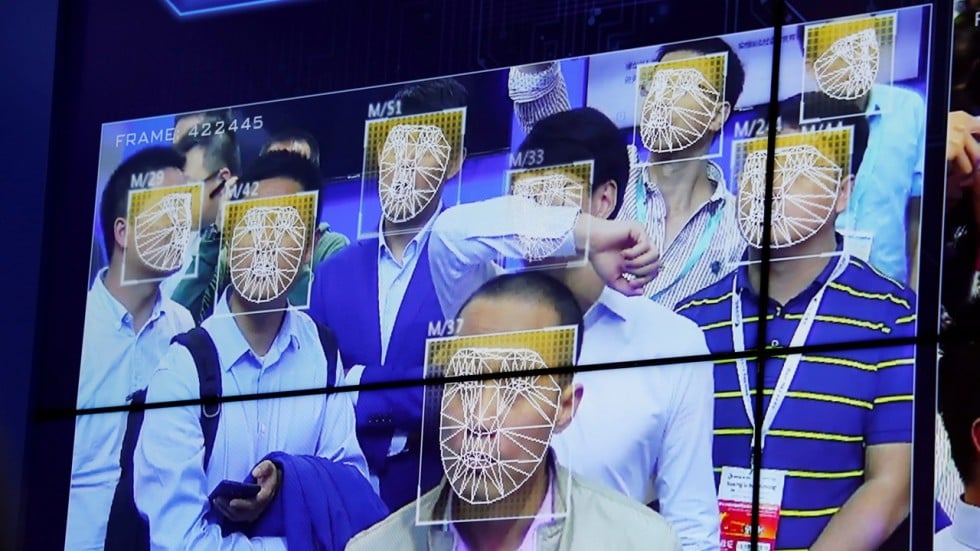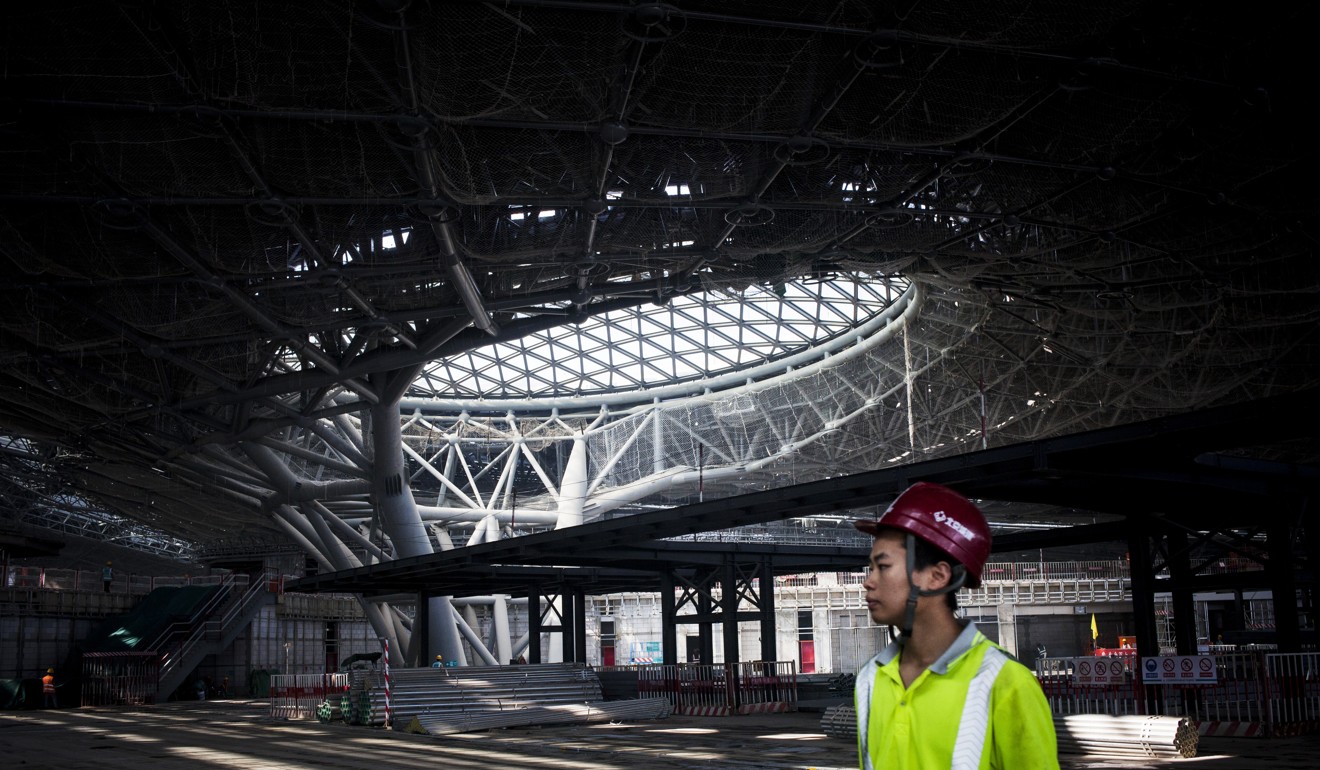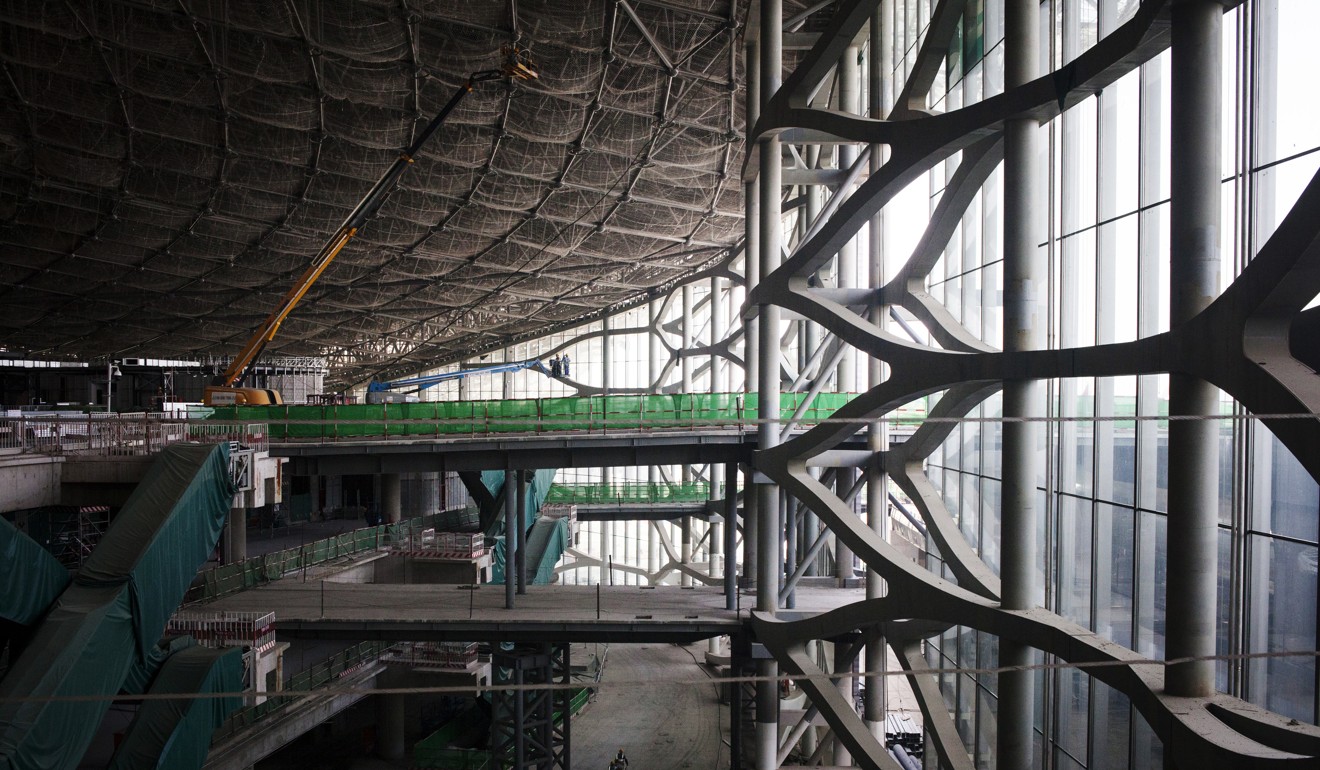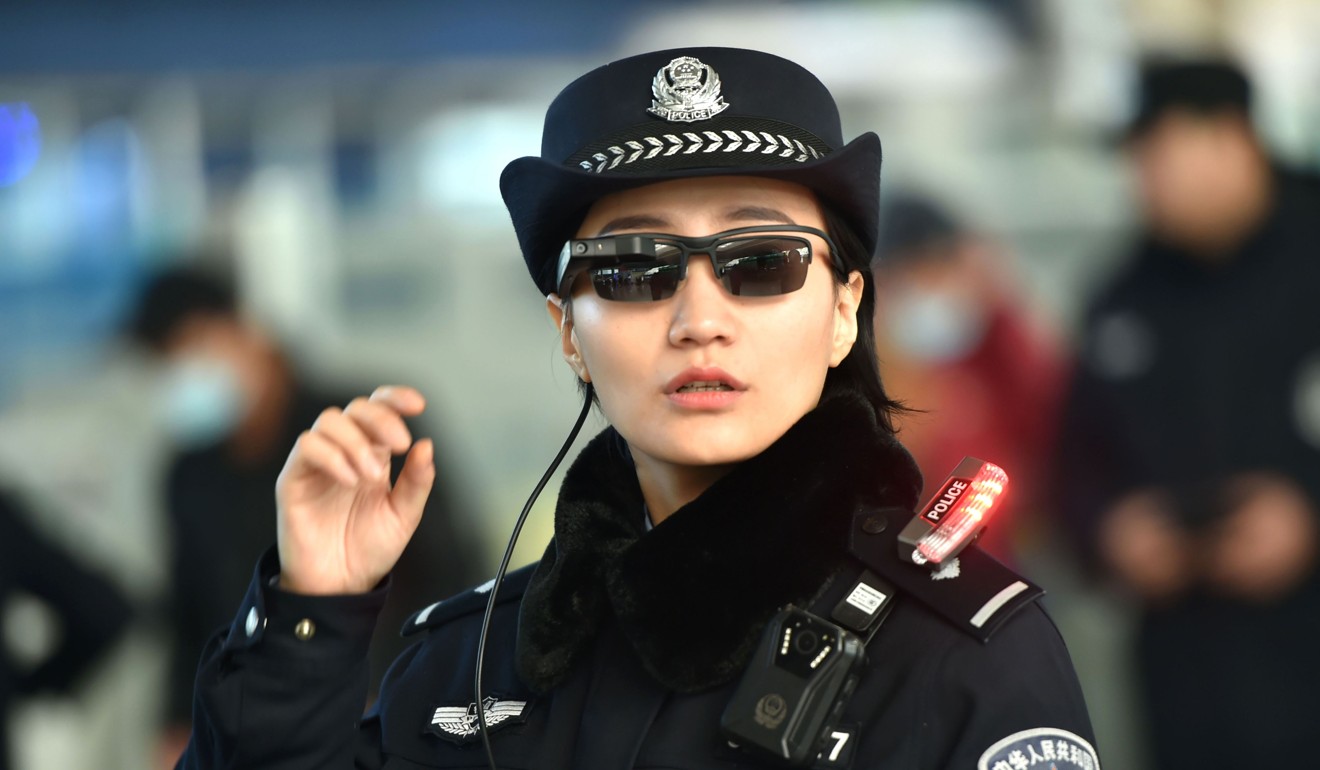βeijing’s new Zaha Hadid-designed airport to showcase latest facial recognition technology
Facial recognition technology developed by Chinese start-ups will be used in Beijing’s new airport for security screening

Sarah Dai Print
Beijing’s new US$12 billion airport, which is designed to handle up to 100 million passengers a year at full capacity, will feature cutting-edge surveillance technology to ease bottlenecks in security and immigration screening.
Chinese artificial intelligence start-up Yitu is preparing a bid to provide its facial recognition technology to the airport, while its close rival SenseTime Group is also expected to compete for the contract.
The new Zaha Hadid-designed airport is situated about 50 kilometres south of central Beijing and will help ease congestion at the current airport located in the northeast of the capital. It will also serve Xiongan, the satellite city in neighbouring Hebei province created to reduce overcrowding in Beijing.

It is expected that identity verification at the new airport will be conducted by cameras that will match the user’s appearance to a national ID database. Through computer vision, airport authorities will also be able to match users to their belongings, so that unattended baggage is easily tracked and assessed for security risk.
Tech start-ups push to make China’s facial recognition systems part of daily life across Asia
SenseTime is said to be testing similar facial recognition technology on a limited basis at the current Beijing airport, according to people familiar with the matter, who declined to be identified as they are not authorized to divulge the details to media.
Started by a group of academic colleagues from the Chinese University of Hong Kong, SenseTime is the most funded Chinese AI start-up, having raised US$1.6 billion as of June, according to the China internet Report published by the South China Morning Post, its tech news site Abacus and San Francisco-based venture capital firm 500 Startups.
SenseTime has already upgraded the IT systems of airports in Chengdu and Haikou, and at more than 30 train stations across China, so that face-scanning machines can match passengers to tickets, reducing the manpower required for the important but repetitive task, according to a company representative.
AI start-up partners with hospital to reduce cancer deaths using big data
Shanghai-based Yitu Technology is also preparing a bid for contracts at the new Beijing airport, according to a company representative, declining to go into details because talks are preliminary. The company has tested its facial recognition technology at the current airport, he said.
Yitu recently branched into medical diagnostics, tying up with a hospital in Chengdu to use AI to speed up diagnosis by assisting doctors in processing real-time inputs from written records, genetic tests, scans and pathological examinations.

It also set up an office in Singapore as part of plans to export its technology to Southeast Asia and has supplied body-mounted facial recognition cameras to Malaysia’s auxiliary police.
Meanwhile, SenseTime has signed separate deals with Singapore Telecommunications, Nanyang Technological University and the National Supercomputing Centre in Singapore.
Bidding for the inner refurbishment of the airport is still ongoing, the airport’s spokesman said in a brief telephone interview, declining to specify the finalised technologies to be adopted.
“Our priority is passenger experience, merging technologies into the overall environment to ensure a seamless boarding experience,” he said.
China’s facial recognition catches another fugitive Jacky Cheung fan
In an interview with China Newsweek in March, Guo Yanchi, the chief engineer overseeing the construction work, told the magazine that “the new Beijing airport is built for the future, on the basis of digitised and smart concepts.”

The airport will utilise technologies including internet of things (IoT), cloud computing and storage, individual smart devices and virtual reality, he said.
China is among the world leaders in the use of facial recognition technology in everyday life.
Facial recognition uses biometric computer applications to automatically identify an individual from a database of digital images and is now being used extensively in China, from authorities spotting suspected criminals and jaywalkers to unstaffed access to luxury residential areas, from payments to car rental transactions.
This Chinese city is policing the streets with facial recognition cameras
In the US, the use of facial recognition has been the subject of mounting public debate. Amazon has been selling facial recognition software to law enforcement agencies, sparking protests from civil rights groups.
The global facial recognition market is forecast to be worth US$6.5 billion by 2021, up from US$2.3 billion in 2016, according to the latest estimates from research company Technavio.
www.fotavgeia.blogspot.com
Facial recognition technology developed by Chinese start-ups will be used in Beijing’s new airport for security screening

Sarah Dai Print
Beijing’s new US$12 billion airport, which is designed to handle up to 100 million passengers a year at full capacity, will feature cutting-edge surveillance technology to ease bottlenecks in security and immigration screening.
Chinese artificial intelligence start-up Yitu is preparing a bid to provide its facial recognition technology to the airport, while its close rival SenseTime Group is also expected to compete for the contract.
The new Zaha Hadid-designed airport is situated about 50 kilometres south of central Beijing and will help ease congestion at the current airport located in the northeast of the capital. It will also serve Xiongan, the satellite city in neighbouring Hebei province created to reduce overcrowding in Beijing.

It is expected that identity verification at the new airport will be conducted by cameras that will match the user’s appearance to a national ID database. Through computer vision, airport authorities will also be able to match users to their belongings, so that unattended baggage is easily tracked and assessed for security risk.
Tech start-ups push to make China’s facial recognition systems part of daily life across Asia
SenseTime is said to be testing similar facial recognition technology on a limited basis at the current Beijing airport, according to people familiar with the matter, who declined to be identified as they are not authorized to divulge the details to media.
Started by a group of academic colleagues from the Chinese University of Hong Kong, SenseTime is the most funded Chinese AI start-up, having raised US$1.6 billion as of June, according to the China internet Report published by the South China Morning Post, its tech news site Abacus and San Francisco-based venture capital firm 500 Startups.
SenseTime has already upgraded the IT systems of airports in Chengdu and Haikou, and at more than 30 train stations across China, so that face-scanning machines can match passengers to tickets, reducing the manpower required for the important but repetitive task, according to a company representative.
AI start-up partners with hospital to reduce cancer deaths using big data
Shanghai-based Yitu Technology is also preparing a bid for contracts at the new Beijing airport, according to a company representative, declining to go into details because talks are preliminary. The company has tested its facial recognition technology at the current airport, he said.
Yitu recently branched into medical diagnostics, tying up with a hospital in Chengdu to use AI to speed up diagnosis by assisting doctors in processing real-time inputs from written records, genetic tests, scans and pathological examinations.

It also set up an office in Singapore as part of plans to export its technology to Southeast Asia and has supplied body-mounted facial recognition cameras to Malaysia’s auxiliary police.
Meanwhile, SenseTime has signed separate deals with Singapore Telecommunications, Nanyang Technological University and the National Supercomputing Centre in Singapore.
Bidding for the inner refurbishment of the airport is still ongoing, the airport’s spokesman said in a brief telephone interview, declining to specify the finalised technologies to be adopted.
“Our priority is passenger experience, merging technologies into the overall environment to ensure a seamless boarding experience,” he said.
China’s facial recognition catches another fugitive Jacky Cheung fan
In an interview with China Newsweek in March, Guo Yanchi, the chief engineer overseeing the construction work, told the magazine that “the new Beijing airport is built for the future, on the basis of digitised and smart concepts.”

The airport will utilise technologies including internet of things (IoT), cloud computing and storage, individual smart devices and virtual reality, he said.
China is among the world leaders in the use of facial recognition technology in everyday life.
Facial recognition uses biometric computer applications to automatically identify an individual from a database of digital images and is now being used extensively in China, from authorities spotting suspected criminals and jaywalkers to unstaffed access to luxury residential areas, from payments to car rental transactions.
This Chinese city is policing the streets with facial recognition cameras
In the US, the use of facial recognition has been the subject of mounting public debate. Amazon has been selling facial recognition software to law enforcement agencies, sparking protests from civil rights groups.
The global facial recognition market is forecast to be worth US$6.5 billion by 2021, up from US$2.3 billion in 2016, according to the latest estimates from research company Technavio.
www.fotavgeia.blogspot.com

Δεν υπάρχουν σχόλια:
Δημοσίευση σχολίου